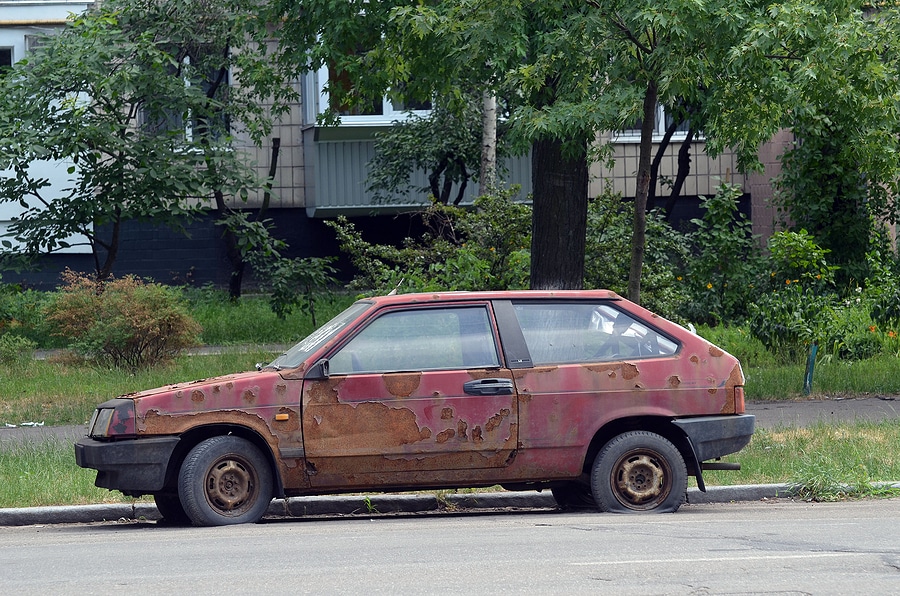The Financial and Environmental Advantages of Recycling Scrap Cars And Trucks
Recycling junk autos provides numerous financial and ecological advantages that extend well beyond waste reduction. By reclaiming up to 90% of automobile components, this technique significantly lessens land fill burden while preserving necessary all-natural resources. Additionally, it reduces energy use and greenhouse gas emissions linked to resources removal and production. The process likewise generates employment possibility throughout numerous fields, from taking apart to logistics, and provides customers with economical auto components. These advantages highlight the complex value of recycling scrap cars and trucks, yet there are additionally facets to consider when reviewing its full effect.
Decreasing Landfill Waste
Reducing landfill waste through the recycling of junk cars and trucks plays a crucial role in environmental preservation. When automobiles reach the end of their life cycle, reliable reusing processes can considerably reduce the volume of waste that winds up in garbage dumps. Scrap cars, otherwise appropriately recycled, add to the growing issue of land fill overcapacity, intensifying environmental degradation and possibly infecting soil and groundwater with hazardous compounds such as oil, gas, and heavy steels.

In addition, the reusing process mitigates the unfavorable results of auto waste on biodiversity. Landfills are notorious for interfering with local ecosystems, and lowering the increase of junk vehicles helps maintain all-natural habitats. Inevitably, recycling junk cars is a calculated method that promotes lasting waste monitoring, aligning with wider environmental objectives.
Conserving Natural Resources
In enhancement to mitigating land fill overcapacity, recycling scrap cars plays a considerable duty in preserving natural deposits. The auto industry is greatly dependent on various steels, plastics, and various other products that require considerable mining and handling. By reusing scrap vehicles, we dramatically decrease the need for basic materials, consequently suppressing the environmental destruction related to mining tasks. For circumstances, reusing steel from old lorries minimizes the need for iron ore extraction, which subsequently lowers energy usage and greenhouse gas emissions.
Additionally, the procedure of reusing auto parts such as copper, lead, and aluminum is much less energy-intensive than creating these products from virgin sources. This power savings equates directly into reduced nonrenewable fuel source usage and reduced carbon footprints (junkyard near me). In addition, by redeeming and repurposing materials, we extend the lifecycle of non-renewable sources, ensuring they stay offered for future use
Moreover, recycling vehicle liquids like oil, antifreeze, and transmission liquid avoids harmful substances from infecting soil and water sources. Via organized reusing efforts, these liquids can be detoxified and recycled, promoting a round economic situation and further diminishing the pressure on natural deposits. Hence, reusing junk automobiles offers a multifaceted technique to saving our world's invaluable all-natural possessions.
Creating Task Opportunities
The recycling of scrap cars and trucks not just benefits the setting but additionally promotes economic growth by producing work opportunities. This expanding sector uses a vast variety of work potential customers, varying from the first collection and transportation of old automobiles to the complex procedures of taking apart, sorting, and repurposing the numerous elements.

The expansion of recycling plants better magnifies the work market, demanding roles such as designers, device operators, and quality assurance experts to make sure and manage the sophisticated machinery compliance with environmental regulations. Even management placements, such as sales, advertising, and customer care, see a rise as the sector broadens.
Decreasing Production Prices
By including recycled materials from junk vehicles, suppliers can dramatically reduce production costs. The utilization of recycled steel, aluminum, and other beneficial steels lowers the demand for raw material removal, which is both energy-intensive and costly. This not just conserves natural resources but additionally translates into substantial cash for cars denver cost financial savings for vehicle makers. The energy required to process recycled materials is dramatically less than that needed to produce brand-new materials from square one. This reduction in energy usage directly associates with decreased manufacturing expenses.
Moreover, the recycling process helps simplify the supply chain by supplying a steady influx of materials that are easily offered and usually more affordable than freshly extracted resources. These price performances are especially crucial in a very affordable sector like automotive manufacturing, where margins can be razor-thin. Furthermore, the recycling of junk vehicles helps reduce the unpredictable pricing of raw products, making it possible for producers to far better projection and control their production budget plans.
Supplying Economical Vehicle Parts
When scrap vehicles are reused, the availability of cost effective vehicle components substantially boosts, benefiting both customers and service center. Recycled automobile parts are typically cost a fraction of the cost of new components, providing an economical choice for car owners and mechanics. This cost can be crucial for people that may not have the economic means to acquire brand-new elements, enabling them to keep their automobiles in operational and risk-free condition.
Service centers also get from this raised accessibility of budget-friendly components. By sourcing recycled parts, these businesses can decrease their operational costs, which can be handed down to consumers via reduced service fee. This, consequently, can lead to higher customer fulfillment and loyalty, as clients value the cost savings without endangering on quality.
Additionally, the quality of recycled parts has boosted dramatically over the years, thanks to improvements in recycling procedures and high quality control measures. Several recycled parts go through extensive screening to ensure they satisfy industry requirements, providing dependability equivalent to new components - junk car buyers. By offering a high-grade and financially practical alternative, the recycling of junk automobiles plays a crucial role in sustaining both the automotive repair service industry and the broader consumer market
Final Thought
Recycling junk vehicles provides significant financial and ecological benefits by significantly lowering landfill waste and preserving natural sources. This technique reduces manufacturing prices by redeeming up to 90% of automobile elements, thus decreasing energy usage and greenhouse gas exhausts. In addition, it creates employment possibility throughout numerous sectors and supplies affordable car components, strengthening the automobile repair work market. Overall, the recycling of scrap cars and trucks supports both financial development and sustainability objectives.
Recycling scrap cars provides countless economic and environmental benefits that prolong well past waste decrease. Junk automobiles, if not correctly reused, contribute to the expanding trouble of land fill overcapacity, aggravating ecological degradation and potentially contaminating dirt and groundwater with dangerous compounds such as oil, gas, and heavy steels.
By reusing scrap cars, we substantially decrease the demand for raw products, thus suppressing the environmental degradation linked with mining tasks.When scrap automobiles are recycled, the availability of affordable car parts significantly enhances, profiting both customers and repair shops.Recycling junk cars provides considerable financial and ecological advantages by dramatically lowering garbage dump waste and saving all-natural resources.